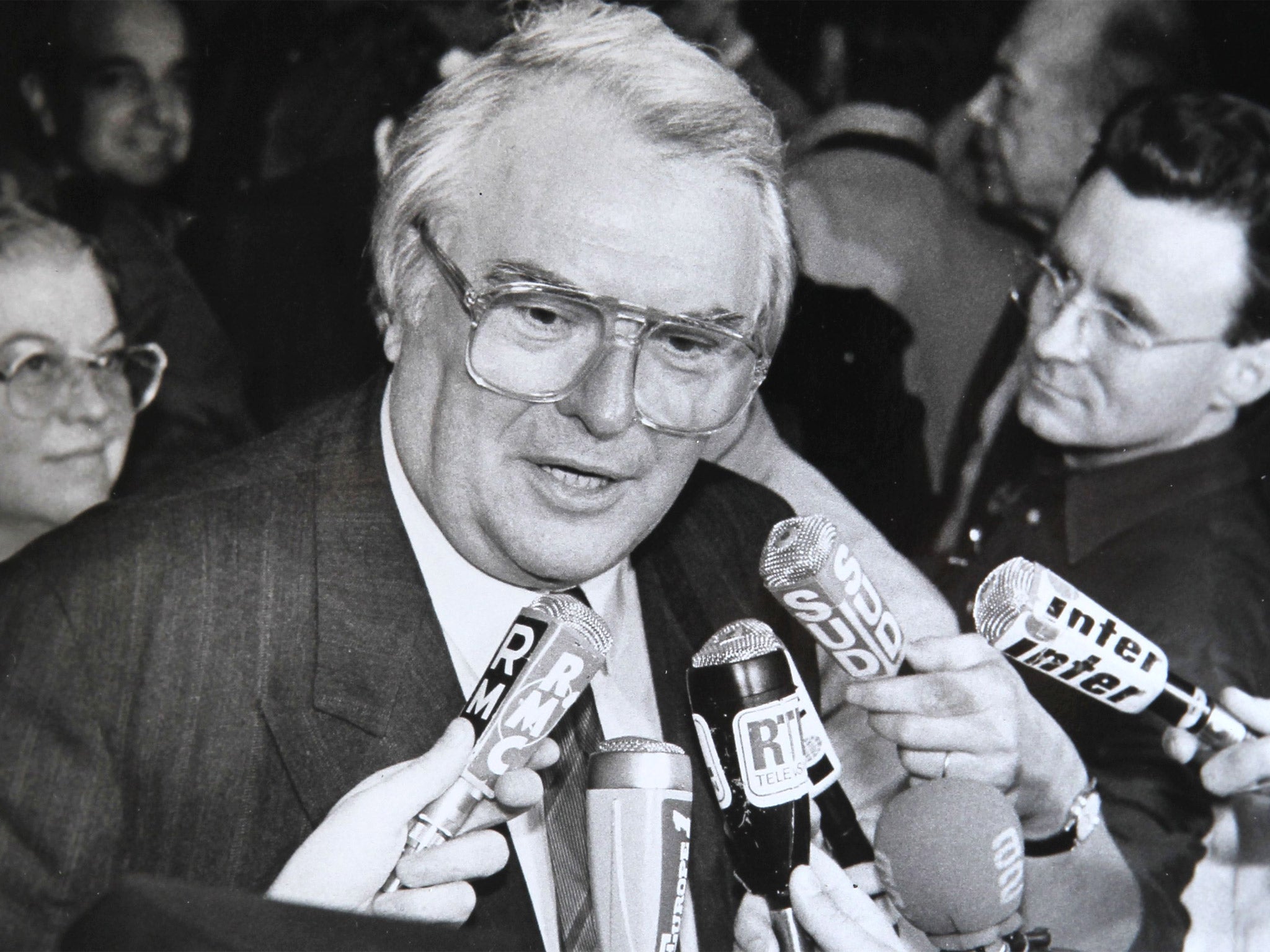
Your support helps us to tell the story
From reproductive rights to climate change to Big Tech, The Independent is on the ground when the story is developing. Whether it's investigating the financials of Elon Musk's pro-Trump PAC or producing our latest documentary, 'The A Word', which shines a light on the American women fighting for reproductive rights, we know how important it is to parse out the facts from the messaging.
At such a critical moment in US history, we need reporters on the ground. Your donation allows us to keep sending journalists to speak to both sides of the story.
The Independent is trusted by Americans across the entire political spectrum. And unlike many other quality news outlets, we choose not to lock Americans out of our reporting and analysis with paywalls. We believe quality journalism should be available to everyone, paid for by those who can afford it.
Your support makes all the difference.When Ronald Reagan and Margaret Thatcher were establishing the global mood music of the monetarist, greed-is-good 1980s, Pierre Mauroy sought to make France dance to a different tune. As the first Socialist Prime Minister of the Fifth Republic (1981-84) and first prime minister of the François Mitterrand era, Mauroy pursued a policy of nationalisation, taxation of the rich, increased minimum wages, retirement at 60 and a 39-hour working week.
And yet Mauroy, who has died at 84, was no leftist rabble-rouser. At a time when Marxist abstractions still gripped much of the intellectual and party-political Left in France, he represented a different, more pragmatic Catholic-Socialist tradition. Long before Tony Blair and New Labour, Mauroy rejected "leftist verbalising" and "dogma terrorism" as the enemies of true social reform. He tried to ditch the grandiloquent, tricky Mitterrand as leader of the French left in 1979. He initially opposed all Socialist alliances with the then still powerful French Communist Party.
Despite failing on both counts, he was chosen by Mitterrand as Prime Minister in May 1981 and agreed to appoint Communist ministers to his government. It is one of the great ironies of his career, and the history of French Socialism, that Mauroy remains forever associated, especially abroad, with the unreconstructed, dogmatic leftism of his first years in office.
His government's statist, workerist, free-spending policies had to be abandoned – partly to his own relief – amid deep financial crisis in the spring of 1983. Other more leftist and nationalist voices tried to persuade Mitterrand to continue France's one-nation assault on the zeitgeist of the 1980s by quitting the ERM, the European exchange rate mechanism (forerunner of the Euro).
Mauroy, a passionate European, told Mitterrand that he was unwilling to "drive on icy roads". He and the then finance minister, Jacques Delors, convinced Mitterrand that France must stay in the ERM and switch to policies of financial rigour and privatisation.
An exhausted Mauroy was removed from office in 1984 after he was forced by a street revolt of the middle-class Catholic Right to withdraw a proposal to abolish private schools. He retreated to his native north, where he was already the mayor of Lille (1973-2001).
Mauroy, a proud northerner or "Ch'ti", was a main-mover in the economic and cultural revival of Lille in the 1990s. When he was still leader of the French government, his visiting card read "Mayor of Lille and Prime Minister". Mauroy never returned to national office but remained until his death last week a much-respected, and much consulted, elder statesman of the French and European Left.
Pierre Mauroy was born, the eldest of seven children, in 1928 at Cartignies in the Nord département near Lille. His father was a teacher and his mother a devout Catholic. When he was 11 his family joined the civilian exodus which choked the roads of northern France to flee the advancing German army. After the war he became a teacher but was rapidly swallowed up by full-time political activity. In 1951, he married Gilberte Deboudt, another teacher, who survives him. They had one son.
By 1966, he was the secretary general of the Section Française de L'Internationale Ouvrière, the forerunner of the modern Parti Socialiste (PS). He failed to become the leader of the new PS by one vote in 1969.
In the 1970s he worked at first with François Mitterrand, the PS first secretary, to modernise the party. In 1979 he joined forces with another Social democrat, Michel Rocard, to try to push the party to the reforming right or centre. He failed to oust Mitterrand but was chosen in May 1981 as a "safe pair of hands" to lead the first government of the Mitterrand era. Although often remembered for its failed economic policies, his government was also responsible for social reforms, such as the abolition of the death penalty.
Much in Mauroy's brief career in national government foreshadowed the problems faced by the present Socialist government in France. Like President François Hollande, Mauroy was a man who believed in government by compromise or, critics would say, "muddling through".
In a speech eulogising Mauroy at the Invalide this week, Hollande described him as a man who grasped that "economic rigour" was a "precondition" of reform and social justice. He failed to point out that, Mauroy, probably against his own better judgement, allowed the French economy to drift dangerously for two years before imposing a more rigorous approach in 1983-84. Many of France's economic problems to this day can be traced to that period.
John Lichfield
Pierre Mauroy, politician: born Cartignies, France 5 July 1928; Prime Minister of France 1981–84; married 1951 Gilberte Deboudt (one son); died 7 June 2013.
Join our commenting forum
Join thought-provoking conversations, follow other Independent readers and see their replies
Comments